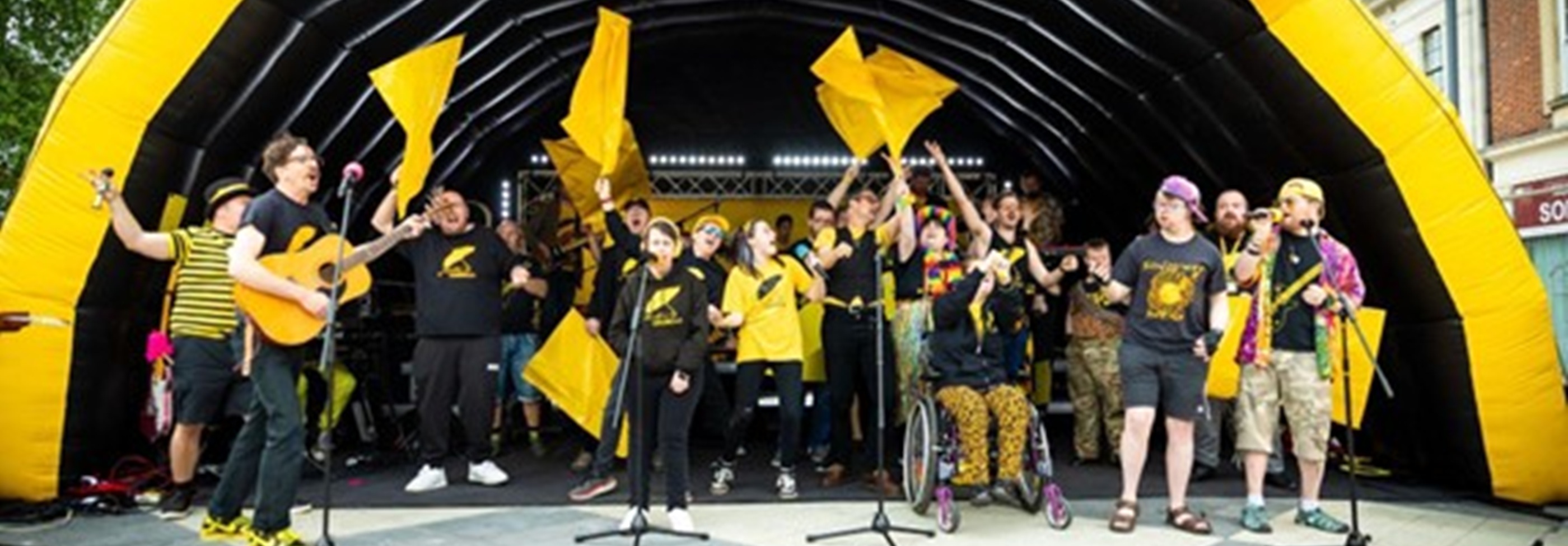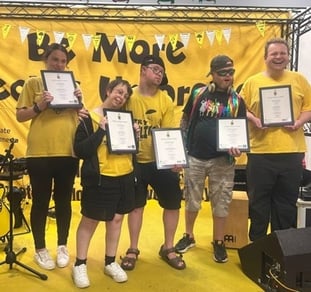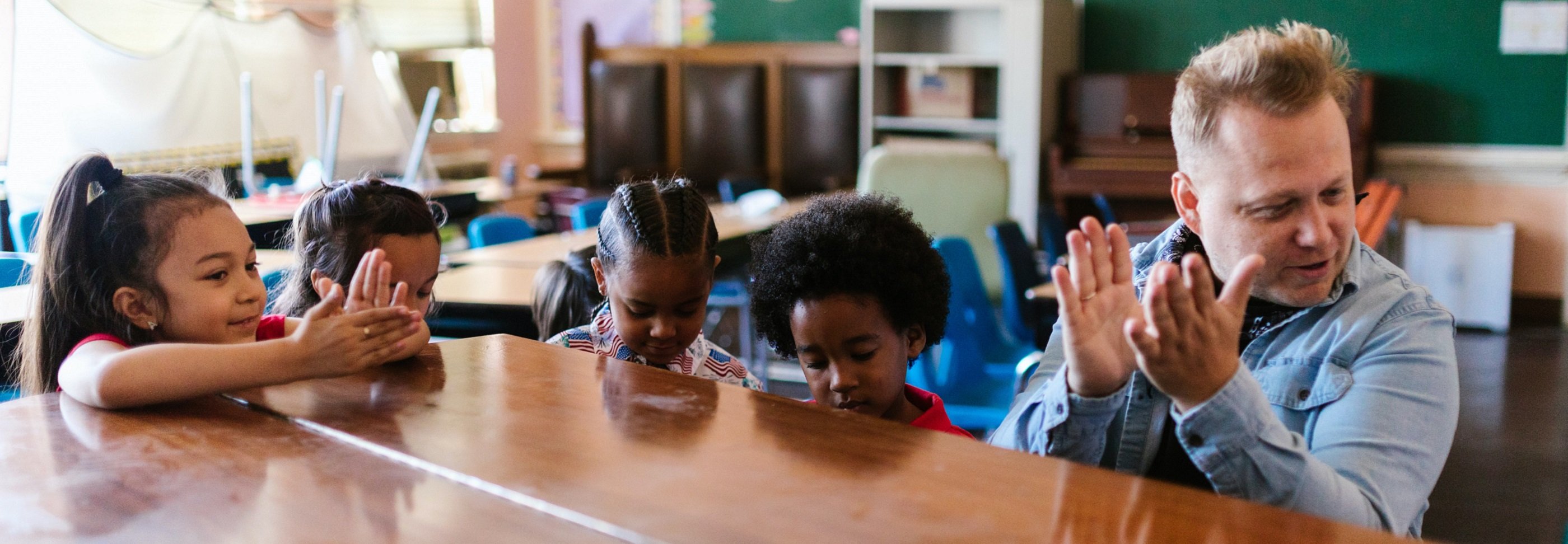
Finally! Recognition and accreditation for learning disabled musicians! Electric Umbrella’s experience of delivering Trinity’s Awards & Certificates in Musical Development
BY: Guest Writer
13 August 2025
Electric Umbrella took the country by storm when they received the coveted Golden Buzzer in this year’s series of Britain’s Got Talent. But, away from the spotlight, the organisation is reaching learning disabled individuals with their range of inspirational musical activities. Electric Umbrella’s offer to their members has been further enhanced by them becoming a Trinity College London Awards & Certificates in Musical Development (ACMD) centre and embedding the fully regulated qualifications into their programmes. Read on as Claire Boulter, Head of Education and Programmes, shares why they chose to become a centre and their top tips for delivery.
At Electric Umbrella, we use music to unite communities and create a more inclusive society. Alongside our schools’ programme and vast output of original music, we work with over 200 learning disabled musicians who are the heartbeat of our community. Our weekly sessions and Crew Days create spaces for everyone to experience the power of music in a way that is appropriate for them, whether that’s performing onstage or engaging in meaningful sensory encounters with our professional musicians. Our work is embedded in community, spontaneity, creative magic and never putting a ceiling on someone’s potential.
Electric Umbrella’s mission is about shining a light on the learning disabled community, and ensuring equity for a group of people who are too often left silenced in the shadows, without access to opportunities that celebrate and recognise their achievements. The ACMD programme is designed to be inclusive for all participants, leading to accredited qualifications that mirror those of our learning disabled members’ peers - perfectly aligning with our own belief that if you make extraordinary adjustments then the positive impact can be huge!
With such a large and diverse membership, we were excited, but a little daunted, as to how we would roll out the qualifications. How would we be able to assess our members when our work is so often rooted “in the moment”? How would we apply the Sounds of Intent framework to our sessions? Would the assessment model work in a group delivery setting where, traditionally, graded music exam repertoire hasn't been used? How would we gather the evidence that we needed? After reflecting on our own practice, selecting a group of our most experienced learning disabled members, and jumping in at the deep end, we’re incredibly proud that we now have our first cohort of awardees!
Our top tips for centres interested in delivering Awards & Certificates in Musical Development
- The awards are designed to be delivered on the basis of ongoing observation so remember that it will take time, and that’s ok!
- If you have a large group, don't panic. Consider focusing on a small group of individuals as your first cohort so that you get to know how the awards work within your setting.
- Don't be intimidated or put off by the idea of making an assessment of the people you are working with. At first, it can seem overwhelming to have that level of authority and to be expected to make spontaneous, therapeutic musical interactions seem academic. Trinity College London is great at offering advice on how you can relate the awards to your particular setting. Don't be afraid to ask.
- Get to know the Sounds of Intent framework and criteria so that you are able to align spontaneous moments of magic to them within your regular work.
- Get into the habit of videoing your sessions (with the relevant consent obtained, of course) so that you don't miss anything that could count towards a person's achievements.
- When it comes to submitting evidence, remember that you can submit a video of a group performance/session, so long as you make it very clear which person is being assessed within the clip.
- Don't feel that you have to change your delivery style of content to match the award scheme. Be proud of the different ways that your students/community experience music and let that be your guide to helping people achieve. A dancefloor dance-off mashup can get the same reactive responses as a formalised listening exercise.
The pride that our members and their families felt when receiving their awards made us realise just how vital and valuable they are. We know that our learning disabled musicians create incredible things every single day, but the achievement of an accredited, official qualification goes one step further in shining a light on individuals that are too often kept out of the spotlight.
Are you interested in following Electric Umbrella’s lead and becoming a Trinity Awards & Certificates in Musical Development centre? Click here to find out how.
Related posts
BY: Guest Writer
BY: Natalie Christopher



-1.jpg)
Comments & Replies